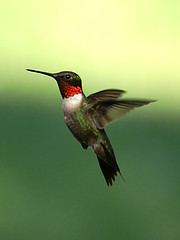The Google Hummingbird algorithm has remained at the forefront of internet search news since it was officially announced at the end of September as part of Google’s 15th anniversary celebration.

 Google Hummingbird, the creators say, represents a major improvement in the quality of search results.
Google Hummingbird, the creators say, represents a major improvement in the quality of search results.
With two months of “live search results,” what do we know about Google Hummingbird? The answer is, quite frankly, just a little. The official announcement also revealed that Hummingbird had been launched by Google on August 30 of this year. There was virtually no speculation of changes at Google by search marketers during its initial, “secret” month of use and there’s been little reported effects in the lodging and destination market since its announcement.
What we do know is what Google is claiming about its new algorithm. From that, we can at least speculate on how it will affect search marketing efforts. Let’s look at what Google has stated:
1. Google Hummingbird Is a New Algorithm
Unlike Panda and Penguin, which were updates to an existing algorithm, Google Hummingbird is an all-new algorithm that, according to Google, represents a major shift in how Google evaluates web content. Google search chief Amit Singhal told Danny Sullivan of Search Engine Land that Hummingbird is the largest algorithm rewrite since 2001.
2. Google Hummingbird Does Use Some “Parts” of the Previous Algorithm
Although it is a “new” algorithm, Google Hummingbird will make use of components of the previous algorithm that have demonstrated their value, which makes sense since there are things about the old algorithm that remain relavent.
Specifically, both the Panda and Penguin components have been retained, as evidenced by Matt Cutts’ announcement of the release of Google Penguin 2.1 and the confirmation of recent changes to Google Panda to “soften” its affect on search results.
3. Google Hummingbird Is Better at Evaluating Queries and Content by Its “Intent”
Google Hummingbird reportedly does a better job of evaluating each word, separately and in conjunction, in a query in order to ensure that the whole phrase is taken into account when serving up results. Therefore, the “intent” of the results (website content) should better match the “intent” of the query.
Examples of Google Hummingbird in Action
Google has not provided a way to compare results of the previous algorithm vs. Hummingbird. Instead, they’ve provided some examples of how results have changed:
- Search phrase: “pizza hut calories per slice” – Google used to display this result as #1, but Hummingbird now recognizes Pizza Hut as an authority on its own product and shows its website result at #1 (unless something in your personalization would get in the way, I suppose).
- Search phrase: “pay your bills through citizens bank” – Google used to show the Citizens Bank home page as #1 and now shows the payment page as #1.
I’ve seen some changes amongst our clients’ sites as well. Pages with content specific to queries are now appearing higher than the home page in Google’s raw search results, so that’s a good thing. It’s not consistent, so there is still a lot to learn and we’ll be here to provide our findings as time goes one.
4. Google Hummingbird Is Not The Death of SEO
Just as with any change at Google, speculation about “this is the end of SEO” runs rampant with the announcement of Google Hummingbird. That’s hyperbole at best and fear-mongering at worst. Matt Cutts and others at Google have advised that SEO providers should continue what they’ve always done: find the best way to deliver quality content.
It’s always true to say that SEO is evolving. In this case, it appears that Google Hummingbird, if it lives up to its promises, is actually great news for those who practice effective content marketing on their website.
How Lodging and Destinations Can Make the Most of Google Hummingbird
I believe that, should Hummingbird live up to the hype, bed & breakfast inns, boutique hotels, dude ranches, chambers of commerce and related industries now have an opportunity to be more competitive in content marketing for their specific market. Google is giving more weight to:
- Authority, as evidenced by the “Pizza Hut” example
- Results matching intent of the query, as evidenced by the “Citizens Bank” example.
In short: you have a better chance of having your well-written, authoritative, socially engaging content rank highly for highly specific keyword phrases if you follow this strategy:
- Strive to become the authority of the Unique Selling Point (USP) of the content you publish – this is becoming more crucial on all search engines. For Google that also means that establishing Google+ authorship. At the recent Pubcon Las Vegas, Google confirmed authorship is growing in importance in determining authority.
- Write content worthy of reader response – social media components of your content (comments, reviews, likes, shares, etc.) will become more of a factor to rank.
There will be more to learn as we see long-term results come in, but, for now, Google Hummingbird is nothing to fear if you are already engaged in effective content marketing. Contact InsideOut Solutions if you want help starting or evaluating your search marketing efforts.



